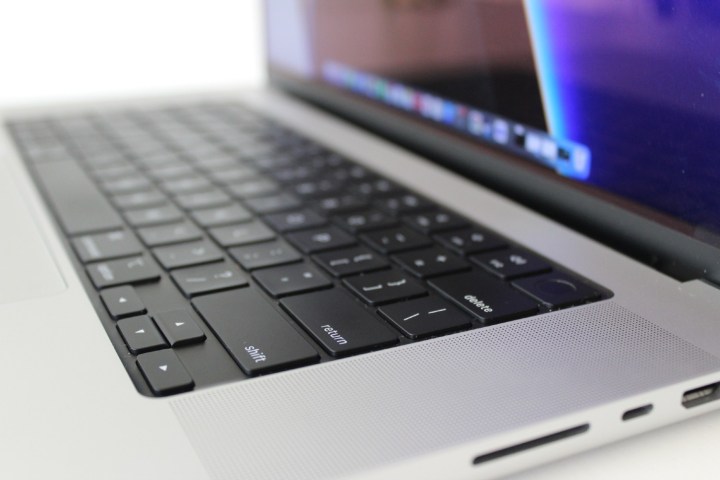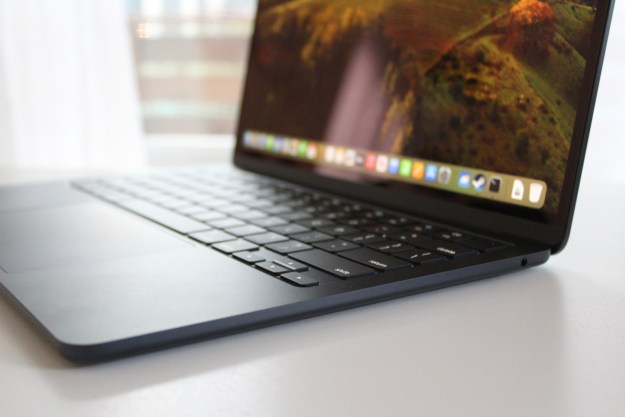The 2021 MacBook Pro is one of the best laptops Apple has released in recent years, but it seems even the best has flaws. A number of owners are complaining of audio issues, which are being described as a popping or crackling sound during audio playback.
The issues aren’t consistent and happen randomly while songs, video, or other audio sources are playing. Specifically, the popping is more pronounced at higher volume levels or pitches.

Most complaints are coming from Apple’s own community forums and on Reddit, as reported by 9to5Mac. It’s not just hearsay though — Digital Trends can independently verify that our review unit also suffers from the same audio issues. Bass frequencies in particular seem to rumble and shake the speakers.
Most of the complaints are from the built-in speakers. However, at least one person experienced crackling noises even while using Apple’s AirPod Max, both plugged in and over Bluetooth.
Theories abound as to the exact reason for the audio issues. It seems to be a software issue related to MacOS’s kernel interaction with the “coreaudiod” process. Some Reddit users recommended killing the process via the Activity Monitor. When the process starts back up, the issues should disappear.
Some have noticed that the popping noises tend to happen when the laptop is completing CPU-intensive tasks. One user has even resorted to using their own monitoring equipment to send data to Apple.
Apple has yet to officially comment on it other than advising owners upgrade to the latest version of macOS. That seemed to help some, but others are still experiencing issues. Older MacBook Pro models from at least 2017 also seem to suffer from the popping and crackling noises.
Understandably, many people are frustrated at Apple’s lack of response, especially considering the newer MacBook Pro models start at $2,000. For that kind of money, you’d expect a certain level of urgency to ensure software bugs are fixed.
The MacBook Pro audio problem isn’t the Mac-related issue of late. Tests on the M1 Max MacBook Pro and Mac Studio confirmed that machines aren’t getting the full Thunderbolt 4 speeds. The front I/O ports on the Mac Studio were egregiously slow compared to the rear ports.
Hopefully, Apple addresses this soon through a software update, though who knows when that’ll happen, since this has been an issue for years.
Editors' Recommendations
- Does your Mac need antivirus software in 2024? We asked the experts
- These 6 tweaks take MacBooks from great to nearly perfect
- How to take a screenshot on a Mac
- MacBook Pro 16 vs. MacBook Pro 14: The important differences
- If you buy one MacBook Air alternative, make it this one




